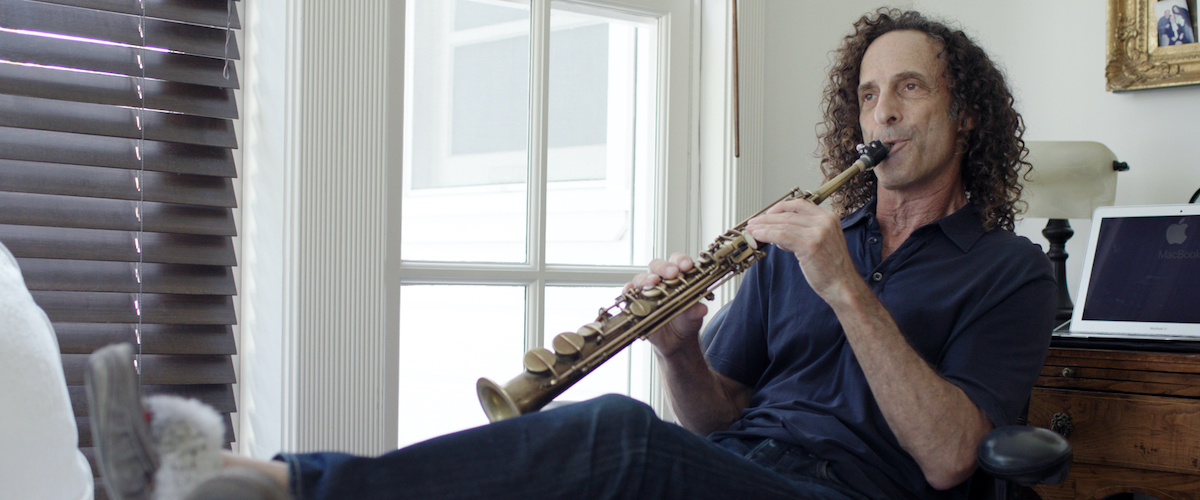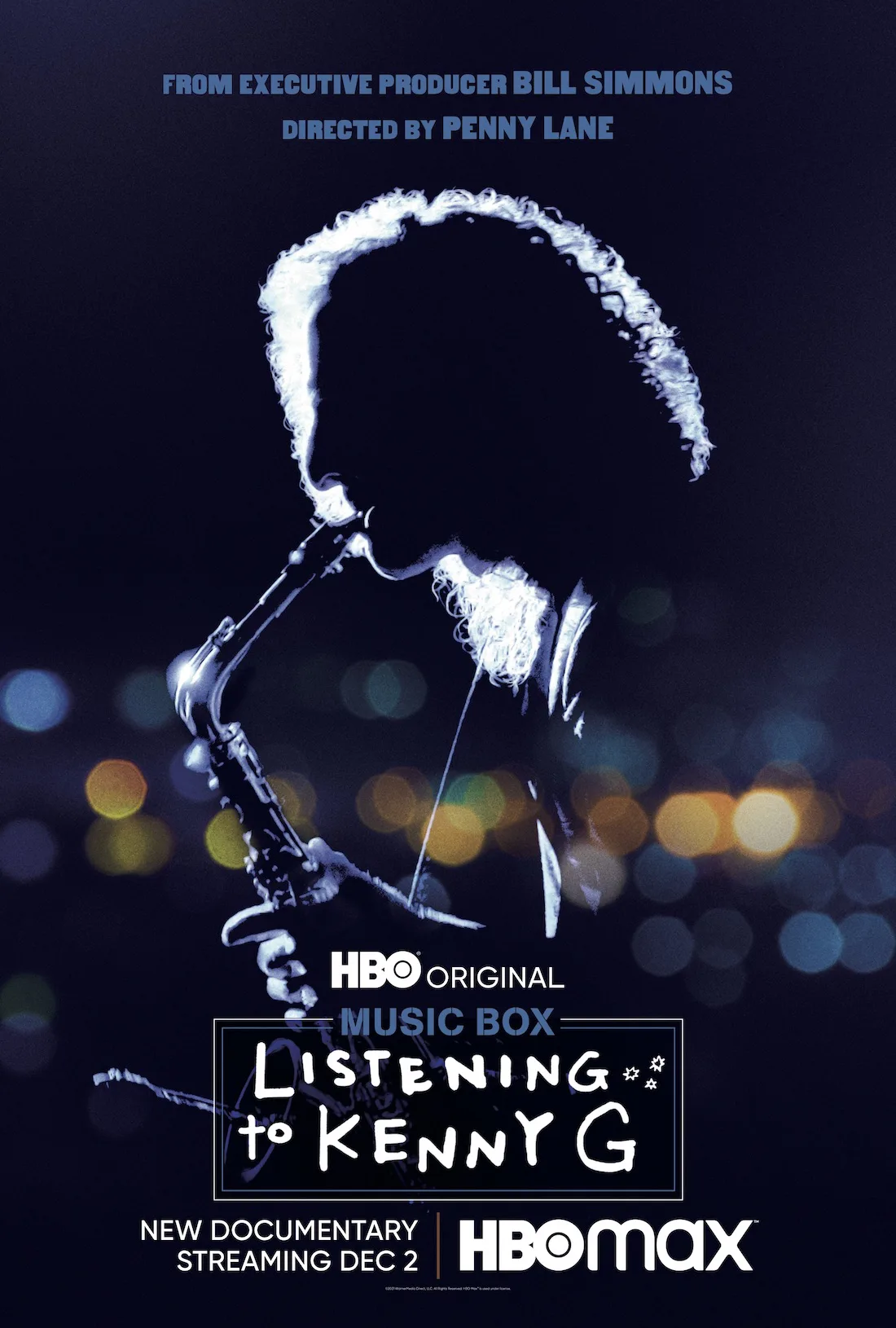Penny Lane’s new documentary “Listening to Kenny G” could have just as easily been titled “Citizen G.” It takes a prismatic, every-possible-angle approach towards its subject, saxophone superstar and top-selling instrumentalist Kenny G, but never quite figures him out in a fully satisfying way. Of course it’s possible that there’s nothing to “figure out” in that sense.
It’s a bit strange watching the title subject being so seemingly open and transparent with Lane and her crew, letting them into his house and studio and taking them to visit his old high school in Seattle, only to arrive at the halfway mark in the movie and realize that he hasn’t really shown us much of anything at all, and isn’t likely to. Listening to him talk about music is like listening to some guy talk about how he taught himself to play blackjack and got to the point where he could go to Atlantic City every weekend and come home with money in his pocket. He makes it sound as if success in the music industry comes from a code that certain people can crack if they have the right combination of talent, connections, and work ethic. He might be right, but exhilarated isn’t the word for how you feel after he takes you through his thought process.
He’s an icon of can-do confidence, for sure. He talks a lot about how Arista records founder Clive Davis, another of Lane’s interview subjects, listened to him play in Seattle and immediately signed him and tried to turn him into a rhythm and blues star by pairing him with vocalist Kashif and hiding his ethnicity through photographic and design tricks on the packaging. (“They wanted to make sure nobody knew that I was white,” he says.) We also learn about all the other things he taught himself how to do superlatively well, including piloting planes, playing golf, and raising his two sons. (G tells us that he wanted to be the greatest father of all time, and the movie rightly realizes that there’s no point trying to blow the lid off the assertion.)
As presented by Lane, Kenny G (born Kenny Gorelick, a self-described Jewish kid from Seattle) radiates a bit of Tom Cruise’s bland yet undeniably effective relentlessness. He is formidable because of all the things he’s done (some of them unlikely), and because he seized control of his image early in his career and never had to let go because there was no arguing with success. His own stewardship produced more and bigger instrumental hits than anyone had seen before, starting with “Songbird” and continuing through “Silhouette,” which was just as big, and on and on.
An array of critics and scholars and industry figures try to analyze exactly what it is about Kenny G that makes him so popular. His high school mentor, composer and performer James Gardiner, speculates that it’s his virtuoso long-note playing that did it, while Ben Ratliff, a music and film writer for the New York Times, speculates (in a roundabout way) that Kenny G is a success because he’s managed to divorce himself from every tradition that might reflect poorly on him if he were judged in relation to it. He’s not playing jazz, exactly (it’s more easy listening with pinch of jazziness), and he’s not a bandleader in the way that many of the heroes of jazz were (if anything, G is like another of Davis’ technically masterful discoveries, Whitney Houston, a superstar performer who needed to be placed in front of the band and mic-ed as the dominant element to be fully effective—although at least Houston could demonstrate soul whenever it was called for).
There are points early in this documentary where you might wonder if it needed to be a feature (you can imagine a cut-down “60 Minutes” piece doing the job just as effectively), but when Lane gets away from the man and focuses on the details of the business of music, a new frontier of understanding opens up. Kenny G recognized himself as a product early, embraced it, connected with his audience, and never looked back.
Whether his music actually qualifies as any sort of jazz is beside the point. And even if it were germane to the conversation, you still gotta picture Kenny G reading the takedown piece from a raft in a kidney-shaped pool, behind one of however many mansions he’s bought with the fortune he amassed giving the people what they didn’t know they wanted.
On HBO tonight, December 2nd.




















